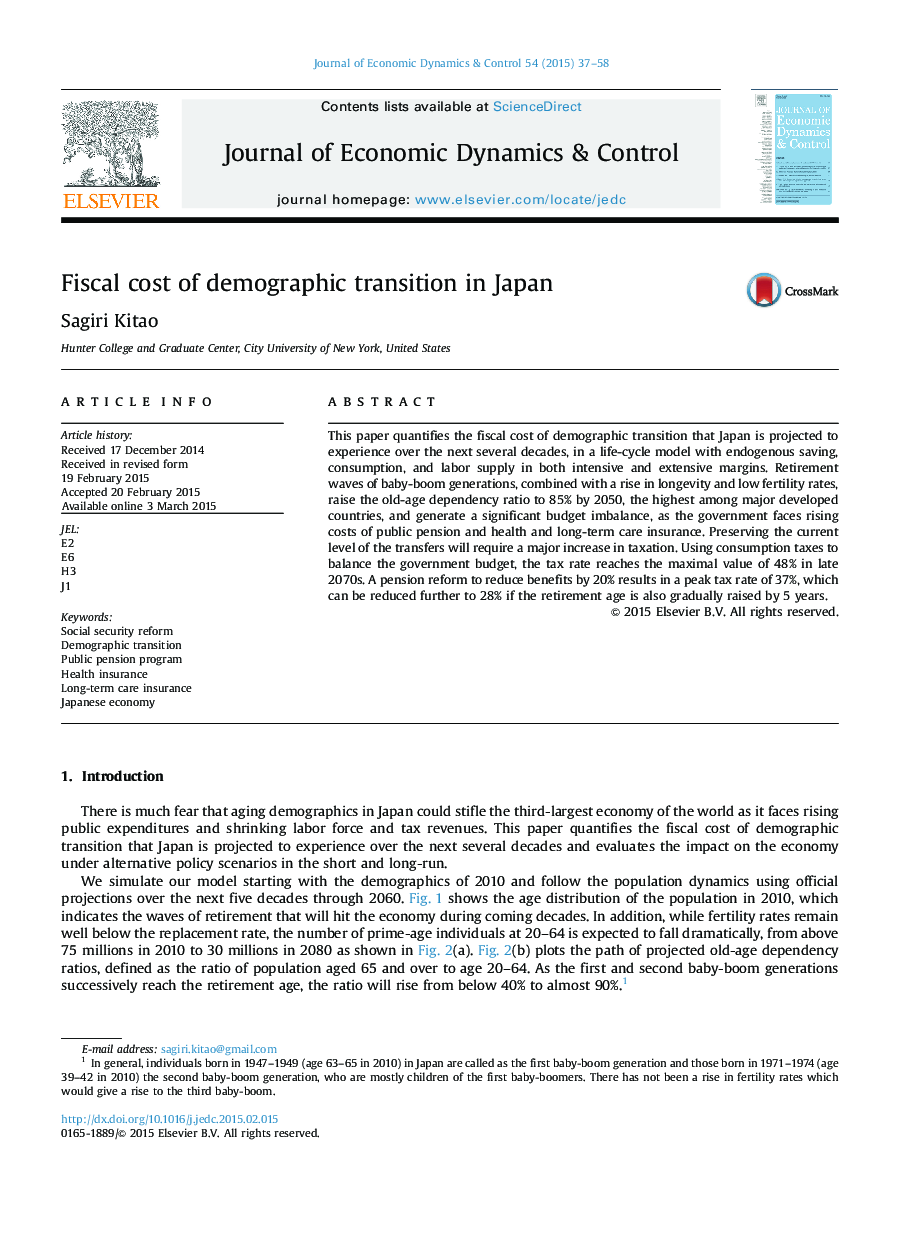| Article ID | Journal | Published Year | Pages | File Type |
|---|---|---|---|---|
| 5098293 | Journal of Economic Dynamics and Control | 2015 | 22 Pages |
Abstract
This paper quantifies the fiscal cost of demographic transition that Japan is projected to experience over the next several decades, in a life-cycle model with endogenous saving, consumption, and labor supply in both intensive and extensive margins. Retirement waves of baby-boom generations, combined with a rise in longevity and low fertility rates, raise the old-age dependency ratio to 85% by 2050, the highest among major developed countries, and generate a significant budget imbalance, as the government faces rising costs of public pension and health and long-term care insurance. Preserving the current level of the transfers will require a major increase in taxation. Using consumption taxes to balance the government budget, the tax rate reaches the maximal value of 48% in late 2070s. A pension reform to reduce benefits by 20% results in a peak tax rate of 37%, which can be reduced further to 28% if the retirement age is also gradually raised by 5 years.
Keywords
Related Topics
Physical Sciences and Engineering
Mathematics
Control and Optimization
Authors
Sagiri Kitao,
